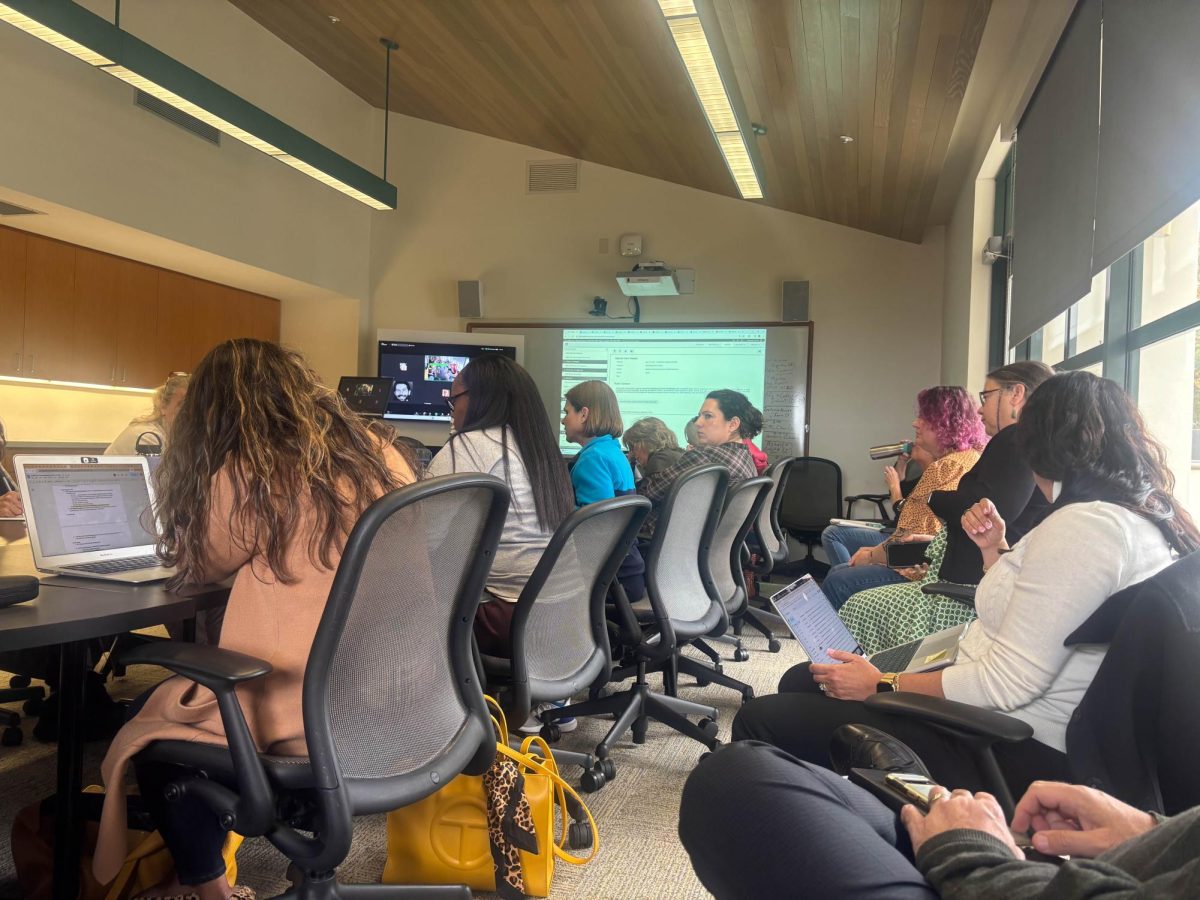The Academic Senate convened on April 23 bringing attention to new changes and concerns toward students at City College.
Assistant Superintendent and Vice President of Student Affairs Paloma Arnold spoke about the recent course name changes that go into effect for the 2025-2026 school year. Some of the course numbering changes include Math 117 Elementary Statistics. The course will be named STAT C1000.
Other course name changes include English, political science, psychology and communication classes. Arnold explained old course names will stay the same on any student’s current transcripts and will only show the new course names if taken after fall 2025.
Assistant Superintendent and Vice President of Academic Affairs María Villagómez and Arnold sent out a memo to all students recently.
The email stated the exact courses being changed and what they will now be, but the email included some questions and answers for any confused students.
Academic Senate Vice-President Tara Carter brought attention to the concerns about inclusive access to textbooks.
Carter explained that the inclusive access option provides students with immediate access to their textbooks at the start of a class, but they will eventually be billed for it. An email is sent out from the bookstore early in the semester and Carter said it can easily be a forgotten email.
“[Students] are getting just bombarded with a lot of information and it just isn’t cooking for them,” Carter said.
For inclusive access books students generally have to opt out by a certain date if they don’t want to be billed. Due to this Carter says there’s a commitment to eventually have an opt-in version instead of relying on the current opt-out option.
It was mentioned if students don’t opt out this leaves them with holds on their account preventing them from registering for classes, but there are also creditors who reach out even after graduating from City College as well about the textbook.
“I also want to acknowledge that we are also approached by textbook companies with opt-in materials,” Carter said.
Assembly Bill 1705 was brought into discussion by math professor Elizabeth Chisholm. AB 1705 was made to reduce pathways for math and English classes when a student is transferring. Instead of having to take multiple math classes at community college to be prepared for a class or to transfer, now in most cases it’s just one.
Chisholm gave examples to help the Senate understand AB 1705 better.
“If you need to take business calculus, you’re in business calculus, the end,” Chisholm said.
Chisholm explained how in order to graduate from high school students aren’t required to take pre-calculus. Meaning there are students in math classes who don’t understand what they are learning because they may have never gotten far in math.
She said she has students in her math class who never took pre-calculus and that some students’ highest math level is math two which is intermediate algebra. Chisholm said if a student passes intermediate algebra in high school a student can take her Math 130 calculus for biological sciences, social sciences and business class.
She also discussed that if someone comes back to community college after 20 years they need to take a certain math class even if they have no knowledge of that type of math class.
“We’re not allowed to offer pre-transfer level math at all,” Chisholm said. “That’s against the Chancellor’s Office.”
The next and last Academic Senate meeting of the school year will take place on May 7.









